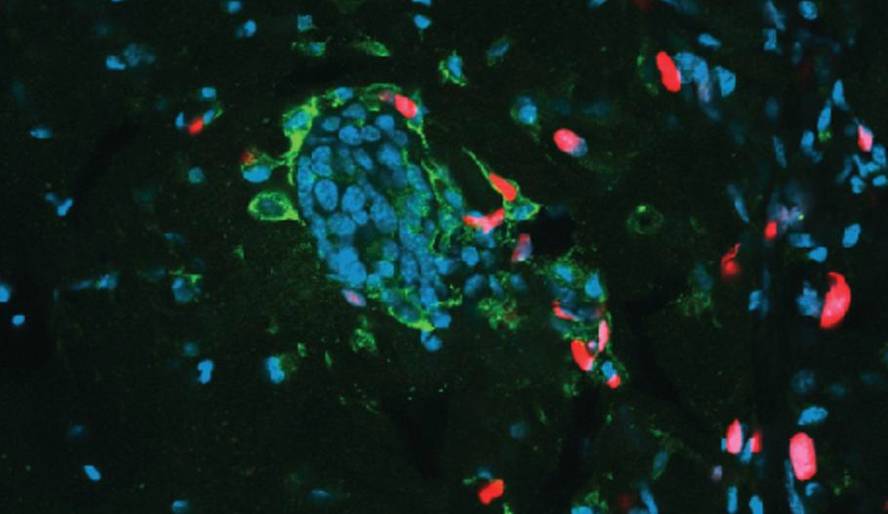Cancer cells treated with chemotherapy survive by eating surrounding cells

Some cancer cells have found that they eat nearby cells to fight chemotherapy. Researchers believe they achieve energy to survive and regenerate the tumor after treatment. The finding has been published in the journal Journal of Cell Biology.
Cancer cells that survive chemotherapy often reproduce tumors quickly. This is due, for example, to cases of breast cancer with a normal copy of the TP53 gene. In these cases, instead of dying from chemotherapy, they stop reproducing and remain in a situation known as senescence. And these cells, in addition to surviving in this situation, produce a large number of molecules that cause inflammation and tumor growth.
They have now seen that breast cancer cells that remain in senescence from chemotherapy often ingest cancer cells in the area. This behavior has been observed in laboratory-bred cancer cells and mouse tumors, noting that it also occurs in lung and bone cancer cells. They have also observed that these senescent cells activate a group of genes activated in leukocytes (leukocytes ingest pathogenic microorganisms and garbage). And they claim that senescent cells that eat surrounding cells survive longer than those that do not. Thus, inhibition of this process could be a new therapeutic alternative.





